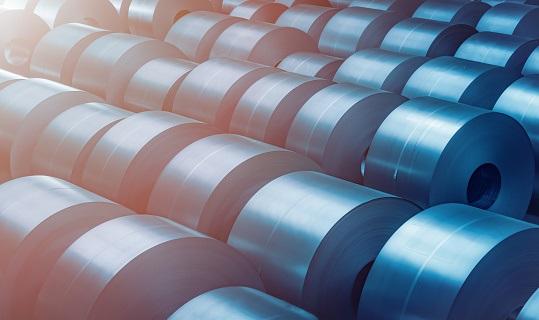Contributing Writer
- FMA
- The Fabricator
- FABTECH
- Canadian Metalworking
Categories
- Additive Manufacturing
- Aluminum Welding
- Arc Welding
- Assembly and Joining
- Automation and Robotics
- Bending and Forming
- Consumables
- Cutting and Weld Prep
- Electric Vehicles
- En Español
- Finishing
- Hydroforming
- Laser Cutting
- Laser Welding
- Machining
- Manufacturing Software
- Materials Handling
- Metals/Materials
- Oxyfuel Cutting
- Plasma Cutting
- Power Tools
- Punching and Other Holemaking
- Roll Forming
- Safety
- Sawing
- Shearing
- Shop Management
- Testing and Measuring
- Tube and Pipe Fabrication
- Tube and Pipe Production
- Waterjet Cutting
Industry Directory
Webcasts
Podcasts
FAB 40
Advertise
Subscribe
Account Login
Search
Despite fabricators’ protests, the White House moves forward with tariffs
A review of ITC cases reveals that tariffs likely to have broad effect on manufacturers
- By Stephen Barlas
- March 14, 2018

Fabricators that rely on steel that is only available from foreign sources could find themselves in a real jam in the coming months because of the steel tariffs.
One only has to look at the investigations now being conducted by the U.S. International Trade Commission (ITC) to understand metal fabricators’ unhappiness with the prospect of 25 and 10 percent tariffs on imported steel and aluminum, respectively.
Currently the ITC is considering several cases involving different categories of imported metals. These cases include a review of a “sunset” case (i.e., a case review after several years) to see if U.S. steel producers are still being hurt and if current tariffs should be continued and first-time investigations of imported steel. In each instance, U.S. metal-consuming companies that depend on imported steel and aluminum are begging the ITC either not to undertake an investigation that might benefit metal producers or to drop an earlier finding supporting the case for penalties that protect a particular U.S. steel-producing segment.
For example, on Feb. 12, the ITC determined that revoking the existing antidumping and countervailing duty orders on imports of cut-to-length carbon-quality steel plate from India, Indonesia, and Korea likely would lead to continuation or recurrence of material injury within a reasonably foreseeable time. This steel plate is used for building bridges, railway equipment, barges, ships, refinery tanks, and structures. The ITC previously has made affirmative decisions of injury on hot-rolled steel products from Australia, Brazil, Japan, Korea, the Netherlands, Turkey, and the United Kingdom, that variety of steel used in energy pipelines. U.S. manufacturers have opposed those determinations in part because certain grades of steel are mostly unavailable from U.S. steel manufacturers.
Craig Brown, product director, strategic feedstocks, Dow Performance Silicones, told the ITC on Feb. 12 that his company had no other alternative in some instances other than buying imported silicon metal (steel tailored to produce specific magnetic properties) from foreign manufacturers. Brown was testifying at a hearing in a case called “Silicon Metal from Australia, Brazil, Kazakhstan, and Norway.” Dow Performance Silicones is the largest U.S. and global consumer of silicon metal, which is purchased by the automotive, beauty, health care, textiles, and other processor industries.
Canada and Mexico are the No. 1 and No. 4 leading exporters of steel to the U.S., respectively, and President Donald Trump has given them a temporary exemption from his proposed tariffs as an incentive to renegotiate NAFTA. However, it is clear from the sampling of ITC cases that imported steel comes from many countries other than Canada and Mexico.
In a March 8 statement, Roy Hardy, president of the Precision Metalforming Association, and Dave Tilstone, president of the National Tooling and Machining Association, said this: “These tariffs will damage downstream U.S. steel and aluminum consuming companies, as the U.S. will become an island of high steel prices that will result in our customers simply sourcing our products from our overseas competitors and importing them into the United States tariff-free.”
Former president George W. Bush imposed tariffs on steel for a year and a half between March 2002 and late 2003. But a report from the Peterson Institute for International Economics concluded in 2003 that the tariffs were responsible for a 3 percent increase in steel prices and were “extremely disruptive to U.S. firms that rely on steel imports to make consumer goods.”
Commerce Secretary Wilbur Ross has made the argument that the tariffs would be valued at $9 billion, a fraction of overall U.S. economic output, which is $19 trillion a year. Another way of looking at that same point is to consider that steel and aluminum account for about 1.6 percent of imports and 0.2 percent of gross domestic product.
subscribe now

The Fabricator is North America's leading magazine for the metal forming and fabricating industry. The magazine delivers the news, technical articles, and case histories that enable fabricators to do their jobs more efficiently. The Fabricator has served the industry since 1970.
start your free subscriptionAbout the Author

Stephen Barlas
- Stay connected from anywhere

Easily access valuable industry resources now with full access to the digital edition of The Fabricator.

Easily access valuable industry resources now with full access to the digital edition of The Welder.

Easily access valuable industry resources now with full access to the digital edition of The Tube and Pipe Journal.
- Podcasting
- Podcast:
- The Fabricator Podcast
- Published:
- 04/30/2024
- Running Time:
- 53:00
Seth Feldman of Iowa-based Wertzbaugher Services joins The Fabricator Podcast to offer his take as a Gen Zer...
- Industry Events
16th Annual Safety Conference
- April 30 - May 1, 2024
- Elgin,
Pipe and Tube Conference
- May 21 - 22, 2024
- Omaha, NE
World-Class Roll Forming Workshop
- June 5 - 6, 2024
- Louisville, KY
Advanced Laser Application Workshop
- June 25 - 27, 2024
- Novi, MI































